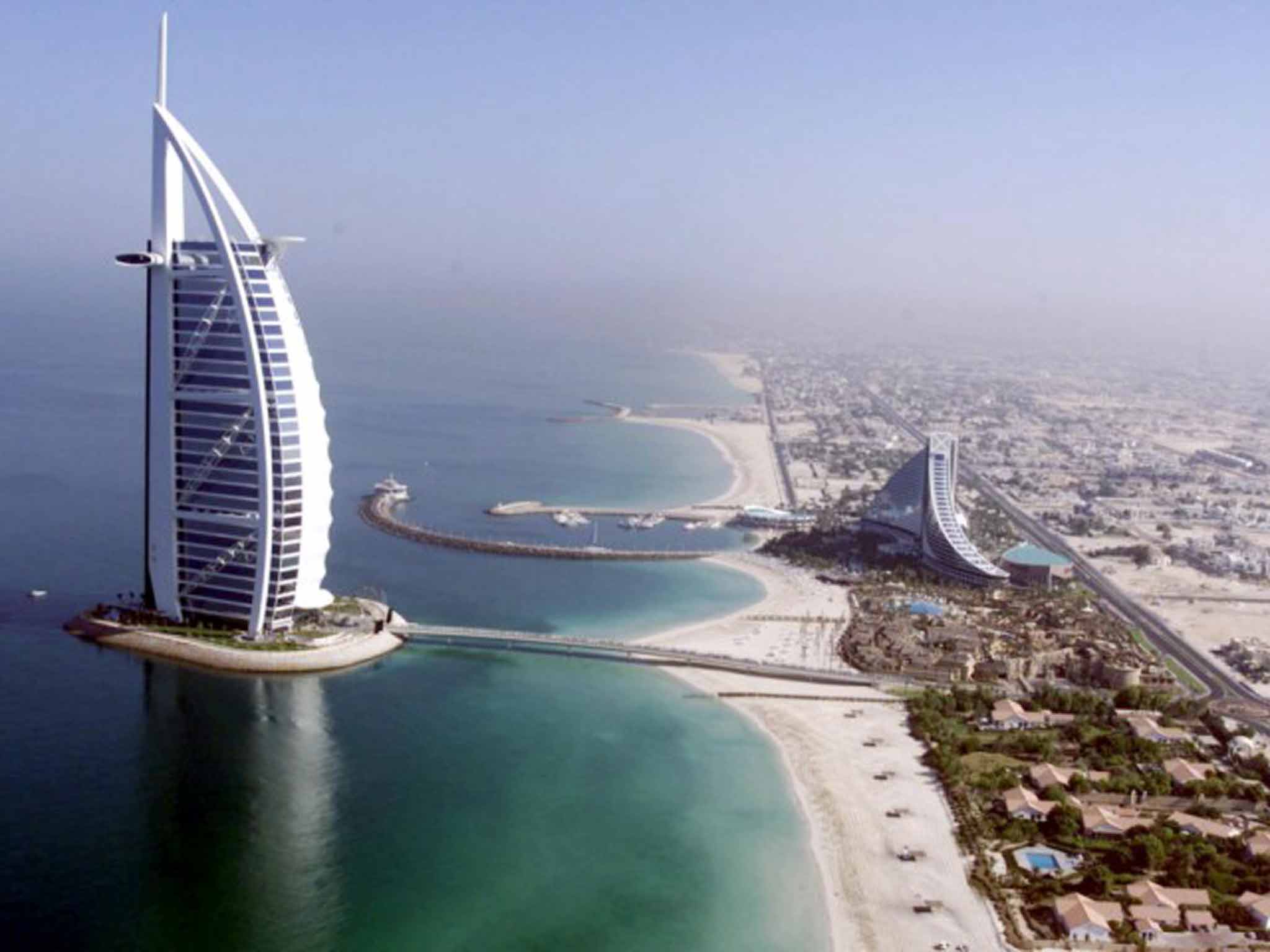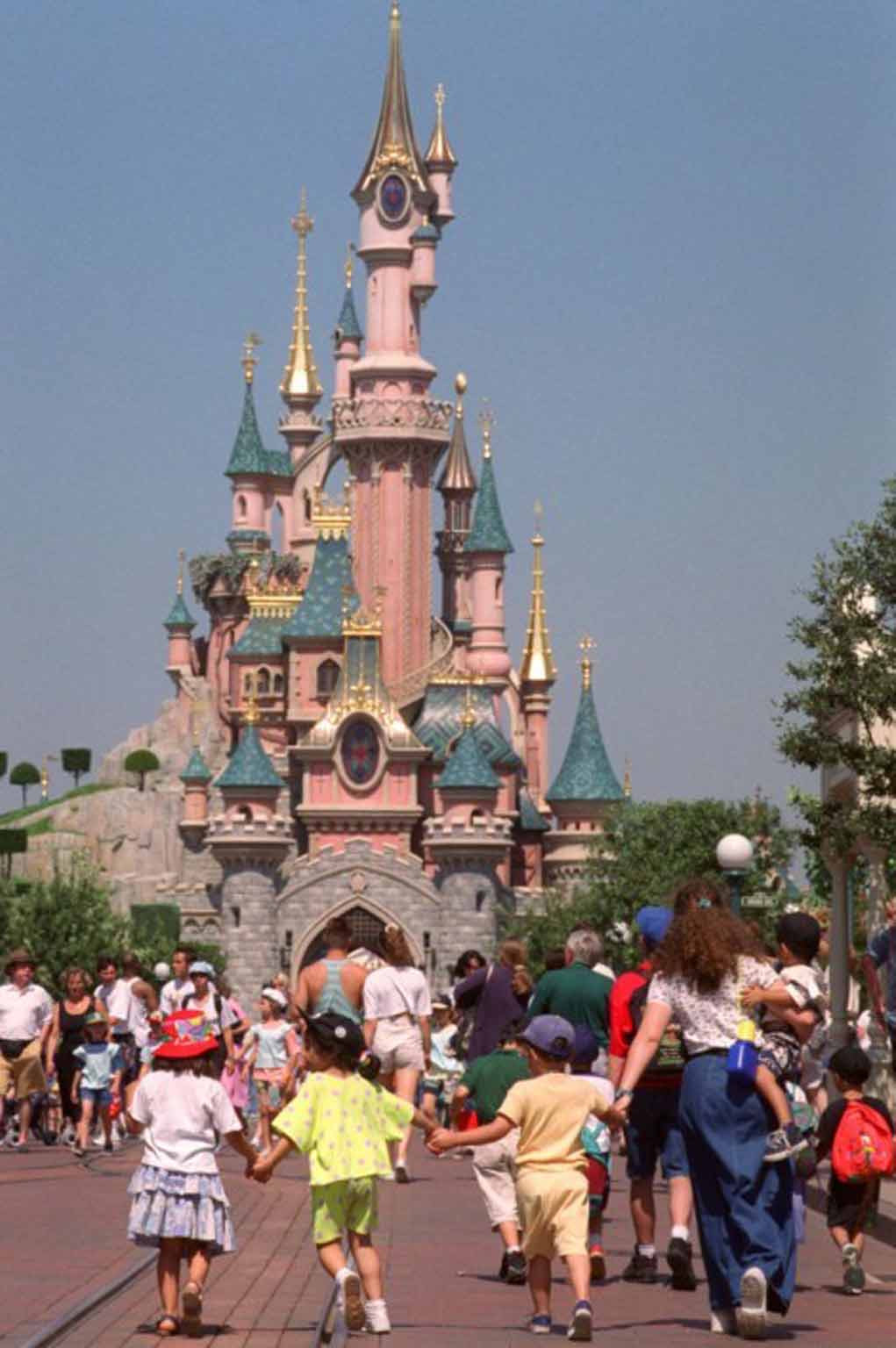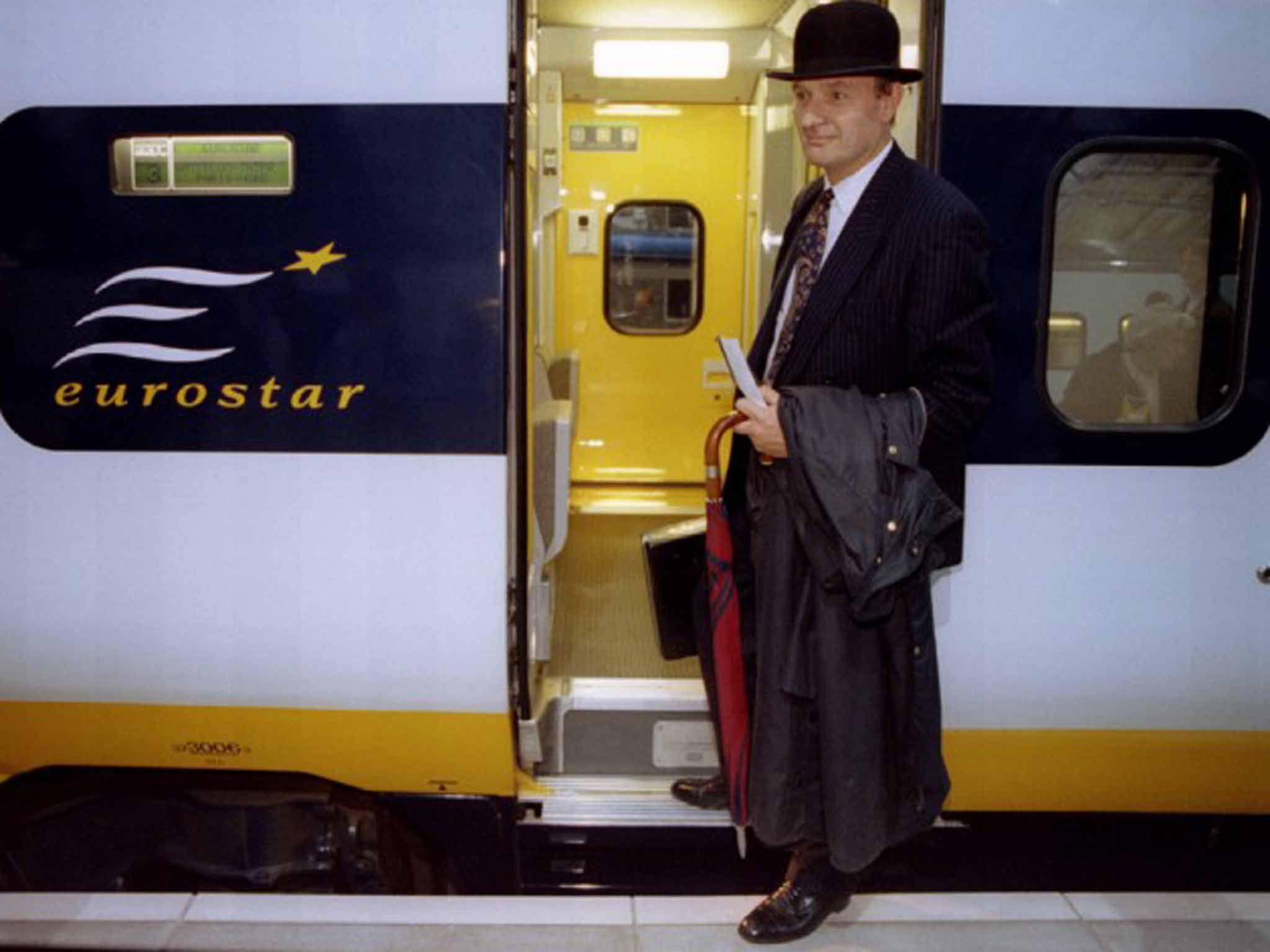M25 to Zika virus: The Independent travel timeline 1986 - 2016
New airlines, new websites, and a new Disneyland in our rundown of the last 30 years in travel,

Your support helps us to tell the story
From reproductive rights to climate change to Big Tech, The Independent is on the ground when the story is developing. Whether it's investigating the financials of Elon Musk's pro-Trump PAC or producing our latest documentary, 'The A Word', which shines a light on the American women fighting for reproductive rights, we know how important it is to parse out the facts from the messaging.
At such a critical moment in US history, we need reporters on the ground. Your donation allows us to keep sending journalists to speak to both sides of the story.
The Independent is trusted by Americans across the entire political spectrum. And unlike many other quality news outlets, we choose not to lock Americans out of our reporting and analysis with paywalls. We believe quality journalism should be available to everyone, paid for by those who can afford it.
Your support makes all the difference.1986 (11 October): the first travel page appears in The Independent, which had launched four days earlier.
(29 October): Margaret Thatcher opens the final section of the M25 orbital motorway around London, between junctions 22 and 23 near Watford. The first complete hitch-hike, that afternoon, takes three hours.
(31 December): Ryanair completes its first full year, flying from Luton to Dublin, for a fare of £99 return – less than half the price charged by Aer Lingus and British Airways.
1987 (30 January): the government's shares in British Airways go on sale. Six months later, BA takes over its rival, British Caledonian.
(February): the first Intourist cross-country ski holiday to Suzdal in the USSR is also the last; only four British tourists sign up.
(6 March): Herald of Free Enterprise capsizes after departing Zeebrugge for Dover, with the loss of 187 lives.
(July): Emirates starts flying from its hub in Dubai to the UK, landing at Gatwick.

1988 (10 March): while skiing near Klosters, the Prince of Wales escapes an avalanche in which a friend dies.
(March): British Airways starts experimenting with banning smoking on a small number of flights.
(June): Austravel announces a programme of charter flights from Luton and Manchester to Australia for under £500 – barely half the prevailing fare. Destinations include Alice Springs, Cairns and Canberra.
(November): British Airways launches the Air Miles scheme.
(6 December): the Archbishop of Canterbury, Robert Runcie, deplores the moral decline associated with tourism: “In the Middle Ages people were tourists because of their religion, whereas now they are tourists because tourism is their religion.”
(21 December): A bomb aboard Pan Am flight 103 to New York explodes shortly after take off from Heathrow. All 259 people on board and 11 people on the ground in the town of Lockerbie are killed.
1989 (8 January): 47 people die in the Kegworth air disaster, when a British Midland Boeing 737 flying from Heathrow to Belfast crashes on the M1 while attempting an emergency landing. It remains the last fatal accident involving a UK-operated jet airliner.
(2 May): Hungarian border troops begin to dismantle its section of the Iron Curtain frontier with Austria, a move that leads to mass migration from East Germany.
(9 November): The East German authorities say citizens can travel to the West, triggering the collapse of the entire Soviet bloc.
1990 (1 September): direct flights begin between Stansted and Havana. Within a decade, the number of British travellers to Cuba each year had risen from 1,200 to 100,000.
1992 (12 April): Euro Disney opens east of Paris. Three years later its name is changed to Disneyland Paris.
(16 September): Sterling loses a quarter of its value as it free-falls out of the Exchange Rate Mechanism.
(October): Hoover launches a free-flights promotion, promising transatlantic tickets for anyone spending £100 or more on white goods.
1993 (1 January): Limits on alcohol are relaxed for travel within the European Community. UK Customs and Excise deems the maximum “for personal use” to be 90 litres of wine and 72 litres of beer.
(May): Enterprise, at the time a leading tour operator, launches package holidays to San Andrés in Colombia. After a class-action law suit, the programme is abandoned.
(18 May): Opening the high-speed rail line from Paris to Lille, President Francois Mitterrand says: “Next year we will set off at high speed across the northern plains, then push into the Channel Tunnel, and afterwards we will be able to dream at a very slow speed in Britain.”
(29 November): The first edition of Wanderlust magazine is published.
(11 December): Air Passenger Duty is unveiled by the Chancellor, Ken Clarke: £5 short haul, £10 long haul.
(18 December): The world's biggest hotel, the MGM Grand opens at the south end of the Strip in Las Vegas, with nearly 7,000 rooms.
1994 (March): Virgin Atlantic sells “open-jaw” tickets from Heathrow to Los Angeles, returning from New York, for £179 – a record low.
(28 September): 852 passengers and crew die when the ferry Estonia sinks on a voyage from Tallinn to Stockholm.

(14 November): the first scheduled Eurostar passenger train departs from London Waterloo to Paris at 8.23am.
1995 (26 March): After a gap of 15 years, British Airways reinstates flights to Beirut.
(10 November): A no-frills airline called easyJet takes off from Luton to Glasgow. The founder, Stelios Haji-Ioannou, a Greek shipping magnate, offers one-way fares for £29.
1996 (4 February): Britain's first privatised train service runs from Fishguard to Cardiff. Due to engineering work, it is a rail-replacement bus.
(22 October): Microsoft launches its first internet operation, selling plane tickets and hotel rooms. The new enterprise is called Expedia.
1997 (17 November): 58 foreign tourists and four Egyptians are killed in a massacre at Hatshepsut's Temple, close to Luxor.
1998: British tourists are allowed to visit Saudi Arabia. Women under 40 must travel with a husband or a brother.
(January): In a newspaper promotion, Hoverspeed pays drivers £1 to take a day trip from Dover to Calais; the firm hopes to turn a profit with the help of onboard sales.
1999 (30 June): Duty-free sales end for trips within the EU.
(5 October): 31 people die in the Ladbroke Grove train crash just outside Paddington station in west London.
(December): Burj Al Arab hotel opens on an artificial island in Dubai.
(31 December): Panama Canal Zone reverts from US control to Panama.
2000 (1 January): London's Millennium Dome opens to an unimpressed public. By the following Boxing Day, the £20 admission price for adults has dropped to £1. The structure is now the O2 Arena.
(3 January): KLM turns its British subsidiary into Buzz, a no-frills airlines. During its 39-month existence, it loses £20 for every passenger it carries.
(February): A US website called TripAdvisor is launched by Stephen Kaufer. Initially it aims to compile officially available information, but soon mutates into publishing traveller reviews.
(9 March): The British Airways London Eye starts taking passengers.
(1 July): The Oresund bridge and tunnel link between Denmark and Sweden opens. Passport checks were introduced in 2016.
(25 July): An Air France Concorde catches fire on take-off from Paris Charles de Gaulle airport. The crash kills all 109 passengers and crew, and four people on the ground.
2001: Prince William takes a gap year, participating in a Raleigh International expedition to South America.
(11 September): Nearly 3,000 people die when four civilian aircraft are hi-jacked after take-off from Boston and Newark airports. Three planes are flown into buildings, destroying the twin towers of the World Trade Center in New York, and damaging part of the Pentagon in Washington. The fourth aircraft, United flight 93, crashes in Pennsylvania after passengers overpower the hi-jackers.
(12 September): Ansett, Australia's second-largest airline, closes; within the next month, Sabena of Belgium and Swissair also go bust.
2002 (1 January): Euro coins and notes enter circulation in 12 EU countries.
(12 October): Terrorists kill more than 200 people in the Bali bomb attacks. Indonesia on the Foreign Office “no-go” list for the next 18 months.
2003 (March): Fear of SARS takes a grip – with China and South-east Asia worst affected. Hong Kong-based Cathay Pacific sells seats from Heathrow to Australia for under £500 return.
(1 May): In the European Union's biggest-ever enlargement, 10 new nations join - including the three Baltic Republics that were formerly part of the USSR.
2004 (January): Queen Mary 2, at the time the largest cruise liner ever built, reaches its home port in Southampton.
(3 February): The first Ghan train arrives in Darwin in Australia's Northern Territory, on a new line from Alice Springs.
(1 September): EUjet starts flying from Manston in Kent to a range of UK and European destinations. It goes bust the following summer.
(26 December): A tsunami in the Indian Ocean kills an estimated 250,000 people, including many tourists in south-east Asia and Sri Lanka.
2005 (7 July): The day after London is awarded the 2012 Olympics, four suicide bombers kill more than 50 people in attacks on London's transport system.
(23 July): 88 people, most of them local workers, are killed in terrorist attacks on Egypt's premier tourist resort, Sharm el Sheikh. Eleven British tourists are among the dead.
(9 October): The ScotRail London-to-Scotland Caledoniian Sleeper becomes the last train in the UK to ban smoking.
(18 October): Eos, a low-fare, business-class only transatlantic airline, starts flying between New York and Stansted. It is soon joined by MAXjet and Silverjet on the same city pair. MAXjet was first to go bust, on Christmas Eve 2007. By May 2008, all three had closed down, blaming high fuel prices.
2006 (February): Flybe becomes the first European airline to charge for checked baggage, with a fee of £2.50. Ryanair soon follows suit, charging £3.50 per bag.
(July): The city of Bath's Millennium Project, Thermae Bath Spa, opens five years late and three times over budget.
(10 August): In response to the “liquid bomb plot” to blow up transatlantic jets, new cabin baggage rules are introduced overnight banning liquids, gels and pastes from hand luggage.
2007 (February): Thomas Cook and Airtours announce they are to merge. A month later, the other two big tour operators – Thomson and First Choice – followed suit.
(March): After 38 years, the BBC axes the Holiday programme. The last report is a film on Laos.
(25 October): First commercial flight on the Airbus A380 “superjumbo”, from Singapore to Sydney.
2008 (11 August): Airbedand breakfast.com is founded in San Francisco. Nine months later, the site is relaunched as Airbnb – which is currently valued at around £17bn, more than any global hotel chain.
(December): The pound plummets to its lowest-ever level against the euro, briefly reaching parity (£1 = €1).
2009 (March): A firm called UberCab is founded in San Francisco. It is currently valued at around £45bn.
(8 June): New York's High Line opens on an old railroad.
(5 December): Maiden voyage of Oasis of the Seas, the largest cruise ship in the world.
2010 (14 April): The skies of Europe are closed by air-traffic controllers because of an ash cloud emitted by Iceland's Eyjafjallajökull volcano.
2011 (9-15 January): A referendum paves the way for the independence of South Sudan.
(29 December): Samoa and Tokelau lose a day when they leap the International Date Line to align calendars with Australia and New Zealand .
2012 (13 January): The Costa Concordia is wrecked on the Italian island of Giglio.
(August): During the London Olympics, 18 per cent of the capital's hotel rooms are empty – twice the usual vacancy rate in August.
2013 (February): Florida requires visiting motorists to carry an International Driving Permit; the law is later annulled.
(5 April): Chinese tourists become the single biggest source of global tourism income, overtaking Germany.
(12 July): Alan Whicker, the first TV traveller, dies aged 91.
2014 (8 March): MH370, a Malaysia Airlines Boeing 777 flying from Kuala Lumpur to Beijing, disappears. A multinational search has so far failed to locate the aircraft.
(17 July): MH17 from Amsterdam to Kuala Lumpur, is shot down over eastern Ukraine
2015 (24 March): Andreas Lubitz, co-pilot of a Germanwings flight from Barcelona to Dusseldorf, crashes into the French Alps to kill himself and the other 149 people on board.
(25 April): An earthquake kills 8,000 in Nepal, devastating much of the tourist industry.
(29 April): New Shepard makes its first successful test flight into space. The craft is being developed by Amazon founder Jeff Bezos's Blue Origin as a vehicle for suborbital space tourism, competing with Virgin Galactic.
(1 May): Eurostar launches direct trains to Marseille.
(26 June): A lone terrorist attacks tourists on the beach at Sousse in Tunisia, murdering 38 people, most of them British holidaymakers.
(31 October): a Metrojet Airbus A321 crashes after take-off from Sharm el Sheikh, destination St Petersburg.
(31 December): Waterloo Station in London handles 200 million passengers in a year, the first time a transport hub in Europe achieves that total.
2016 (January): Zika virus, a mosquito-borne disease linked to birth defects in babies, is spreading quickly in Latin America and the Caribbean.
(26 March): The Independent Traveller appears in print for the last time, and moves wholly online.
Additional research by Louis Ashworth
Join our commenting forum
Join thought-provoking conversations, follow other Independent readers and see their replies
Comments